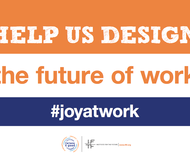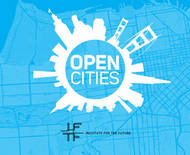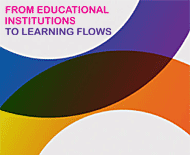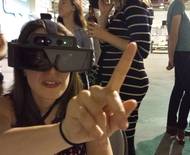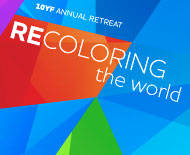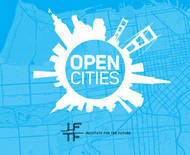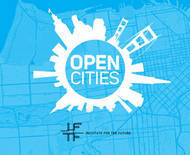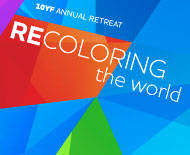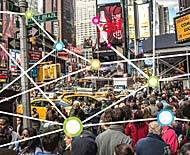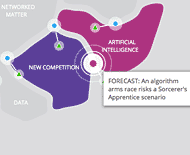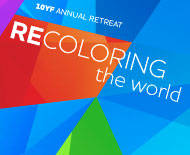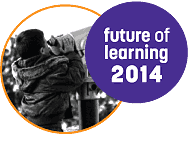On September 25-26, Institute for the Future hosted a writing jam to kickstart the Open Source Guide to 21st Century Movements, a resource for anyone...
Future Now
The IFTF Blog
Help us design the future of work for joy! 2014 Future for Good Fellow Wellington Nogueira is seeding a movement to bring joy into the future of...
Brick-and-mortar retail has been struggling for quite a while. But it has one thing that’s sorely needed in the health world: human...
Institute for the Future and Yerba Buena Center for the Arts are teaming up for the Open City / Art City Festival on October 4 in San Francisco, a...
On September 17–19 IFTF partnered with SJUSD, Cross & Joftus, and Enterprise Development Group, to explore the frontiers of the new learning ecology...
On September 17th, IFTF convened its most recent gathering in our +tech series. Reality +Tech brought guests into direct contact with 4 companies...
Over the next decade, activated networks will leverage new social technologies to disrupt the models used for procuring durable medical equipment,...
The last few years have redefined our understanding of how humans and bacteria interact. We now know that the bacterial cells in our bodies outnumber...
On an intuitive level, we all recognize that art can impact our well-being. But recent research suggests art can be used in medicine in very specific,...
As part of our upcoming 2014 Technology Horizons program conference, we're taking participants on immersions throughout San Francisco for a first-hand...
Join IFTF at our 2014 Technology Horizons conference, Open Cities: How the Maker Mindset is Reinventing Urban Life, October 2-4 in San...
What’s wrong with you? That’s one of the most basic questions that shape clinical encounters, even if it’s rarely asked so bluntly. As the shift...
Massage, reflexology, and other forms of bodywork can do everything from boost immune function to improve asthma symptoms. These treatments have...
Simulations are models of reality that help people prepare for possible futures, and the most ambitious of these attempt to model large complex...
The doctor’s office pain chart has long been a source of frustration for distressed people trying to quantify a subjective experience. What if...
Calling all artists, critical and speculative designers—we need you to imagine the future of cities! Bring your visions and provocations to life at...
The CDC’s Adverse Childhood Experience Study connects chronic stress caused by early adversity and later-life health, and could radically change what...
An algorithm arms race risks a Sorcerer's Apprentice scenario ... As prediction algorithms are deployed to detect geopolitical and financial...
IFTF is expanding and extending our research to broader groups of food system hackers, activists, thinkers, innovators, and eaters—including you....
Over several decades, social epidemiologists have done amazing research on how our health is shaped by social and environmental factors totally...
Over the past decade, collaboration and sharing have emerged as powerful core strategies to unlock the value of underused goods and services in...
Around a year ago at IFTF we began researching a concept we call extreme learning. We have extreme athletes, right? Why not extreme learners? Extreme...
In our 2013 Health Horizons research, Reworking Health, we examined four emerging sources of authority—computation, narratives, networks, and...
A new report co-sponsored by IFTF identifies steps to better support family caregiving through the use of mobile, online, and in-home technologies....





